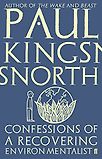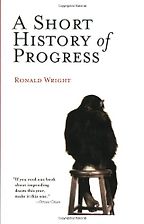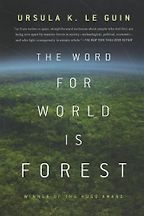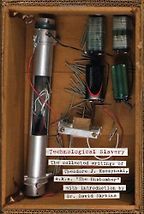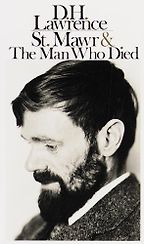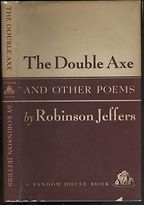I’ve been reading the manifesto of the Dark Mountain project which you co-founded, which says: “The time for civilisation is past. Uncivilisation… is the project we must embark on now.” What do you mean by that?
What we are saying in the manifesto specifically and the project more generally is that writing, art and culture in our society have become too civilised. They are too associated with the cultural aspects of civilisation – the idea that nature is separate from human culture, that technology can solve all our problems and tendencies towards control and rational analysis over intuition. We live in a very rational, economic and scientistic age and a lot of our art seems to be getting sucked down those avenues as well.
What we are trying to say is that we need a form of writing and art that is wilder than that, and more able to look planetary realities in the face. We’re in the middle of a giant global crisis and yet art and writing aren’t responding to it in any way that seems to be effective. We get the odd poem or short story as a cautionary tale, but there’s no real movement of writers and artists who are responding to the fact that the world is radically changing and our assumptions are collapsing.
Uncivilisation is the process of uncivilising your mind and uncivilising your art – getting closer to nature and beyond the human bubble. That’s what most of the books I recommend here are really about. They’re about getting beyond our human assumptions, beyond the concerns of everyday humanity, and looking at our species in the wider context of the whole planet and all the other creatures that live on it. When you start to do that you see human life and human concerns in a very different way.
Is that what you mean when you say “We believe it is time to look down”?
We are talking about the abyss that’s in front of us. Human civilisation and human industrial civilisation in particular have pushed the planet to this incredible brink. There is the biggest mass extinction going on for 65 million years – there are more species disappearing now than at any time since the death of the dinosaurs. We are changing the climate, destroying the forests and we have an incredible population of humans colonising every continent and ecosystem on earth. It’s bringing about the most incredible and rapid changes – you can talk to any scientist about it. Yet we act as if it’s not happening, or if we acknowledge it’s happening we convince ourselves it’s something we can sort out by changing our technologies or signing some political or economic agreements.
“Uncivilisation is the process of uncivilising your mind and uncivilising your art – getting closer to nature and beyond the human bubble.”
What’s actually happening is that there’s an incredible change going on and we don’t know where it’s going to end up. We’re causing all kinds of crises, but we don’t really look at them. We try to avoid it. Even if we talk about climate change, which you hear a lot about now, we talk about it in a very technocratic way, as if we just have to put the wind farms up, have some international meetings and then we can go back to business as usual. I don’t think we can.
Dark Mountain is all about looking down into this abyss and saying that we’ve turned everything upside down, the future’s going to be very different from the past, a lot of our assumptions are not going to hold and we are going to have to live through it. What does it mean when you really believe that the world is going to change radically from this point on? I think that as culture we haven’t answered that question yet.
History is littered with doomsayers. You say that humanity is currently in a state of denial. Why is it that you can see this imminent disaster unfolding while most people can’t?
Most people can if they listen. We are not doomsayers. One of the things we talk about in the manifesto is the importance of not believing in the idea of an apocalypse. It’s very easy to imagine a future in which everything just goes on the same. It also very easy to imagine a future in which everything collapses and we have zombies stalking the land. It’s not so easy to imagine a future, that humanity has been through many times before, in which civilisations collapse and people had to deal with the consequences.
In terms of being able to see the future, you just have to talk to the scientists. This stuff about mass extinction is not made up, it’s all out there. The evidence for climate change is also all out there too. It comes from an examination of what is actually going on in the earth’s systems at the moment.
Whether or not most people believe it is actually pretty irrelevant. We don’t know what the consequences will be or what climate change will do exactly, and we don’t know how the next century will look. But we do know that there are some incredible changes going on and we’re not really adjusting to them.
Your first book recommendation is a series of lectures by Canadian scholar Ronald Wright on the meaning of progress and its implications for civilisation.
Wright is a very thoughtful writer and this is a very interesting and analytical book – it’s not at all a piece of tub thumping. He’s examining the myth of progress. I don’t mean myth in the sense that it’s a lie, I mean in the sense of the guiding story that our civilisation lives by. Wright says that all civilisations live by myths, that we all have stories that we believe in about the way the world is.
One of our myths is the idea of progress – that things always get better and that we are moving in a step-by-step evolutionary process towards a better life. In some ways that is true. We can look back over the last hundred years in the western world and see that medicine, science and technology have got better and we have more democracy. So we can look at these and say progress is real. But if you look at the big sweep of human civilisation over the last 10,000 or 15,000 years, then progress is a lot more bumpy. It goes up and down.
The really interesting thing about Wright’s book is his examination of why what we regard as progress happened in the first place. He finds that more often than not it’s an accident, and what we regard as a deliberate step forward to a new and better form of society is often actually something that’s done in order to make up for a mistake that happened before.
“If you look at the big sweep of human civilisation over the last 10,000 or 15,000 years, then progress is a lot more bumpy. It goes up and down.”
He sees progress as a series of traps which, far from improving life for everybody, just force us into this machine – this strange civilisation which goes faster and faster. And as it does so, it eats up all its own natural resources, creates a society which grips its citizens tighter and tighter, and needs more and more economic growth until at a certain stage it all collapses and the process begins again.
Wright effectively turns the story of progress on its head. For example, he takes a good look at agriculture. He says that humans develop advanced technologies which give them more capabilities. These capabilities are then used to expand their ability to control and kill things. Then they find they’re in a trap, and they have to find new technologies to get themselves out of it.
For example, he looks at Paleolithic hunting. He demolishes the idea that there was a pre-civilisation hunter-gatherer paradise that we should return to. He says that in the Paleolithic period, hunter gatherers began to develop much more effective tools such as spears and bows and arrows, and became much better at hunting. If you look at the paleontological evidence, you find enormous hunting sites where thousands of animals are killed in one go with this new technology.
Humans then begin to spread to all continents on earth, and they take this sophisticated hunting technology with them. As a result, you have a mass extinction of animals. Humans get so good at hunting the large fauna that they end up creating a new problem for themselves to solve – they haven’t got enough food left to hunt. They have expanded their number to a point where they have got a lot of mouths to feed, but because they have been so good at hunting there’s not enough left to feed them with.
It’s at this point that agriculture begins to develop. Wright presents the development of agriculture not as a leap which we made because it leads to a better life, but as a necessity that we had to adopt because we got too good at hunting and gathering. It’s fascinating to read the US geneticist Spencer Wells’s book Pandora’s Seed in tandem with Wright. Wells produces evidence from archaeology and paleontology that shows that when you move from hunter gathering to agriculture, human welfare goes right down – life expectancy falls and human health as measured by the size of skeletons goes down.
“Humans get so good at hunting that they end up creating a new problem for themselves to solve – they haven’t got enough food left to hunt.”
This completely destroys the idea that agriculture was developed because it was a better system. It was developed because man became too good at hunter gathering. Then of course we developed agriculture and got good at that too. As a result, the population increased and we have to create more food to sort that problem out.
Is there an alternative model to humans doing things to excess then having to adapt to deal with the consequences?
Maybe that’s just what humans do. The good thing about Wright’s book is that it’s not political in that sense. He’s not saying: Look at these bad things and let’s do good things instead. He’s just saying that this seems to be the way human evolution works. Wright uses the phrase “the progress trap” throughout the book. Every new technology we develop creates a problem, and we have to develop a new technology to solve the problem caused by the previous one. But every step takes us further into a more complex, hierarchical and destructive civilisation.
Your second pick is The Word for World Is Forest by Ursula K. Le Guin. This is a work of science fiction which came out in the early 1970s. Please tell us more.
I’m not really a big science fiction fan, but this book was recommended to me a few years back and I thought I would give it a try. I don’t know if you’ve seen the film Avatar, but as far as I can see it seems to be pretty much the same story, except that the film has a happy ending and the book doesn’t.
It’s an allegory about the human destruction of nature, and all the things we have been talking about. It’s a colonisation story set on a planet called Athshe, colonised by human loggers, and is set at a stage in the future when humans have destroyed all the biodiversity on earth. They’re all eating vat-grown beef and living in bubbles, and have to find other planets to log because there aren’t any trees left.
Athshe has an indigenous population – very much an allegory of the kind of thing that is happening in the Amazon and elsewhere – which is treated like slaves by the humans. They have an ethic of peace, speak to each other only through dreams, and don’t initially resist the brutal colonisers, but eventually a rebellion brews. Controversially, they decide to break with their tradition of non-violence and fight back. Eventually the human loggers are driven out, which is exactly what happens in Avatar.
But the book has a slightly darker twist, because by driving the humans out the indigenous people have changed their own way of life and start to adopt violent solutions to things, which they had never done before. So you’re left with the impression at the end that although they have been successful in defending their planet, they have also planted the seed of violence in themselves that is going to have consequences in the future.
What you get from this book is a very dark view of a certain type of human nature. It is interesting in the context of this discussion of civilisation because it challenges the idea of benevolent humanity. The humans are seen in this book almost entirely as a negative force. Broadly speaking, the aspect of humanity that you see is resource-grabbing colonisation – which of course is what all human societies have done throughout history. So it is a colonial allegory as well as an ecological one.
Your next book is written by the Unabomber, Theodore Kaczynski, the mastermind behind one of the longest and most publicised terror campaigns in the United States. Should any attention be paid to the thoughts of a convicted murderer?
I included this one as a metaphorical bomb to throw at people. This is a very interesting book that I only came across recently after I read an article about David Skrbina, the academic who put it together and had been corresponding with Kaczynski in prison. I find it interesting that they were able to publish it in America, because the constitution allows somebody who’s in prison to publish their work regardless of what crimes they have committed. That’s an interesting and good way of looking at freedom of expression.
In response to the question about convicted murderers, although what Kaczynski did was horrific and stupid and while I think he should be in prison, I’m always interested in the different stances we take about violence and murder depending on what the political cause is. If we look at Nelson Mandela, who was in charge of what was effectively a terrorist operation in the 1950s and was commanding brigades who were planting bombs in the name of anti-apartheid, we’re quite happy to talk positively about him now because we support his cause.
Similarly, people like Gerry Adams or Martin McGuinness were committing horrific crimes in the 1960s and 1970s. We all know that, but are prepared to give them the time of day now. Whereas with someone like Kaczynski, because the cause he is promoting is so unfashionable, it’s easy not to listen to him because he’s a killer.
I’m not taking a view on whether the use of political violence can ever be justified, but there is a clear difference between Nelson Mandela and Kaczynski. South Africa had a government that brutally repressed its black majority. Kaczynski lives in America, which is a functioning democracy where people can argue their case without having to resort to violence.
That’s the naïve view. If you believe you can change anything radically in America through American democracy then you need to read this book. That is why Kaczynski’s book is so interesting. I started reading it quite sceptically, not really sure I wanted take any notice of him. But I was intrigued by the article I read about it, so I bought it. The case he makes is extremely striking. I think it’s quite convincing, but even if you don’t think it is, it’s a work that is definitely worth engaging with.
Kaczynski thinks that the technological society is fundamentally anti-democratic. His point is firstly that democracy is a complete sham anyway, but his argument is that technology is the driver of so-called progress, the driver of change and the way society is moving, and if you can’t challenge the way that technology is controlling things then you can’t challenge anything. He’s not the only writer who has said things like that – there are a lot of non-murderer authors who have been making this case for a long time. In fact, it fits in quite interestingly with the case that Ronald Wright makes about the direction of progress.
Kaczynski’s argument – which is similar to the case made by the novelist Aldous Huxley – is essentially that technology is developing so fast that we are going to get to a point where we are completely enslaved by it. We’re either going to be replaced by intelligent machines or we are going to have created such an incredibly intense, technologically dependent society that we can’t separate ourselves from the needs of the techno-industrial system.
“If you can’t challenge the way that technology is controlling things then you can’t challenge anything.”
In that context, whether you have a democracy, as you put it, is irrelevant. You can vote every four years in America for one of two parties who will do exactly what the system wants to do. That’s not going to make any difference. So regardless of what you think of his murders – which as I say are horrific and I’m glad he’s in prison – I think the case he makes is fascinating and it’s worth challenging yourself by reading the book. There aren’t many writers around at the moment who have written a really good critique of technology and the way it drives society. It is a shame that one of those who did took it upon himself to kill people.
Let’s move onto your next book, D. H. Lawrence’s novel St Mawr.
There are a lot of fiction and non-fiction writers in the 20th century who started to feel the weight of this machine of civilisation. George Orwell wrote about it all the time, most famously in 1984, as well as Huxley, Lawrence and poets like Robinson Jeffers and RS Thomas. All sorts of writers had the sense that we are living in a machine civilisation that we can’t control, and which has its own momentum. That expressed itself in a number of different ways in writing, whether essays about the dangers of technology or novels about the future.
In St Mawr, Lawrence writes about wildness and civilisation. He always had the feeling that civilisation sucked the spirit and soul out of people. A lot of his books which people have assumed are about sex are not really about sex as such, they’re about the uncivilised wild urge within people that represents itself in a sexual urge. Lawrence had the idea that sex was one of the last ways you could be free in a machine civilisation.
What’s the book’s plot?
This particular book isn’t about sex, it’s about a horse called St Mawr. There is a very civilised and genteel family that lives in London and they buy themselves a wild, untamed Welsh stallion which comes with its handler, a lad from the Welsh valleys who is also untamed. The main character is a young woman called Lou Witt, who is about to marry a young, fashionable poet but is not quite happy with this. It takes the horse to awaken the uncivilised urges within her. She ends up moving to New Mexico in America with the handler, and they take the horse with them because they want to escape from the kind of society that wants to pin them down.
“All sorts of writers had the sense that we are living in a machine civilisation that we can’t control, and which has its own momentum.”
It’s a strange book because the story of the horse peters out towards the end. You realise that the horse is just a means of getting them to this place, and a symbol of what wildness remains. It becomes a long conversation about how you can survive civilisation and love, and what it’s like to be a human animal in these times.
I don’t think it’s brilliantly successful as a piece of fiction and a coherent story, but like all of Lawrence’s books it’s lively and sparky, and makes you think about the issues that most novelists don’t want to tackle – the really big stuff. Lawrence is completely unafraid to be wrong, and unafraid of tackling the really huge issues that you can’t necessarily provide answers for.
That segues nicely to this book of poetry by Robinson Jeffers, who was a friend of D. H. Lawrence. Tell us more about Jeffers and Double Axe.
Robinson Jeffers was a poet who lived in California for most of his life. He’s a very interesting poet, unlike any other I have come across. I remember reading an anthology many years ago and coming across a couple of his poems. I’d never heard of him before but thought they were very striking for two reasons.
First, they had a deep, radical ecological vision of the world. Second, the way they were written, with long, flowing lines – he’s not interested in meter, he’s interested in rhythm. His style is unlike anything else I’ve seen, as are his themes. Jeffers looks at the world, as one would now describe it, from a deep ecological perspective with humans as just one part of the ecological web, not at the centre of it.
He coined the word “inhumanism”, didn’t he?
Yes, he writes about this in Double Axe. It’s probably this collection that destroyed his reputation. In the 1920s and 1930s he was writing romantic poems and was very fashionable, even appearing on the front cover of Time magazine. But as he got older, he became more and more critical of human civilisation and that became unfashionable in the America of the forties, fifties and sixties, which was progressive, looking to the future.
He was also very critical in Double Axe of America entering World War II. This is the only volume of poetry I have ever read that has a publisher’s note in the beginning distancing them from the opinions of the author. That is primarily because he was anti-war, but it’s also because he was writing quite hard, dark poetry about the future of civilisation.
We now come right back round to all the other stuff we have covered today – whether it’s Kaczynski, Ronald Wright or D. H. Lawrence – and this perspective of the almost inevitable movement of civilisations towards doom. Jeffers is probably the darkest writer of all of them. He looks at the human world from a hawk’s eye view. He’s up there, looking down and trying to distance himself from it. You get the impression from Jeffers that he is trying to do that because it’s the only way he can survive in the world without feeling too depressed about it, without feeling too much pain. He comes up with some incredible poetry. Not all of it is good – some of it is a bit didactic and self-indulgent. But when he gets it right, he writes some of the most incredible, outsiderish, radical poetry you have ever come across. It’s like throwing cold water over your face.
Five Books aims to keep its book recommendations and interviews up to date. If you are the interviewee and would like to update your choice of books (or even just what you say about them) please email us at [email protected]
Five Books interviews are expensive to produce. If you've enjoyed this interview, please support us by donating a small amount.

